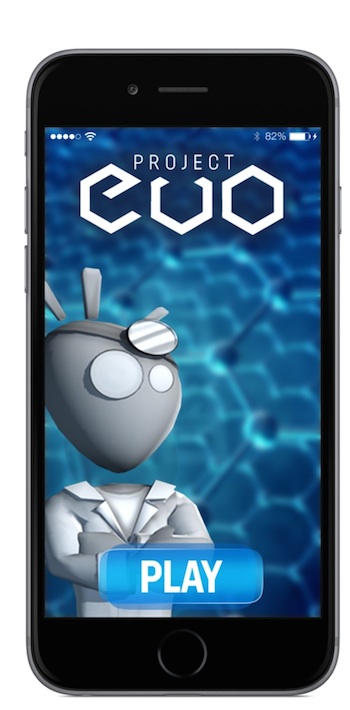 Project: EVO, an iOS-based video game intervention developed by Akili Interactive Labs, may be an effective method for improving attention and memory in children with ADHD, according to a poster presented at the American Academy of Child and Adolescent Psychiatry’s 62nd annual meeting today.
Project: EVO, an iOS-based video game intervention developed by Akili Interactive Labs, may be an effective method for improving attention and memory in children with ADHD, according to a poster presented at the American Academy of Child and Adolescent Psychiatry’s 62nd annual meeting today.
Researchers from Florida Clinical Research Center, SUNY Upstate Medical University, and Duke University School of Medicine recruited 80 children between the ages of 8 and 12. Within this group, 40 children had ADHD, but were not taking medication, and 40 had no psychiatric diagnosis. The participants used Project: EVO on a tablet for 30 minutes per day, five times a week, for four weeks. The researchers' primary goals included assessing the intervention's feasibility, determining whether it is safe to use in the home, and measuring the efficacy of the offering.
“These data demonstrate that Project: EVO improved attentional functioning and working memory in children with ADHD,” Scott Kollins, the principal investigator as well as the director of the ADHD Program at Duke University School of Medicine, said in a statement. “While results are preliminary, these data provide a strong rationale for continued work to develop this novel, digital intervention for ADHD.”
Project: EVO is designed to assess and treat cognitive issues. To play the game, a user navigates an alien, chosen specifically because it is culture-neutral but also relatable, down a course by tilting a smartphone or tablet back and forth. While navigating the alien, the user must also respond to targets by tapping the screen. Because it is high resolution, the app keeps track of movements every 30 milliseconds and can therefore monitor the user’s behavior and quickly adapt to the player.
On the first day of the trial, researchers recorded baseline outcome measures for the participants. For the following 27 days, the participants used the app on a tablet five times a day for 30 minutes and researchers notified parents if participants did not use the app for 48 hours.
When the pilot ended, researchers found that there was an 81 percent compliance rate for use of Project: EVO and on average participants played the game for 9.1 hours over 4 weeks. A majority of participants' parents, 77 percent, said the game was either very worthwhile or somewhat worthwhile for their child. Although researchers tracked nine adverse events, none of them were related to the intervention. Within the ADHD group, there were no dropouts.
Based on these results, the game developer, Akili Interactive Labs, will launch a large, randomized, controlled study to further validate the efficacy and safety of Project: EVO as a treatment for pediatric ADHD. This study will be used to support an FDA filing for the app.
When MobiHealthNews spoke with the company last year, Akili CEO Eddie Martucci told MobiHealthNews the offering is also has use cases for people with other conditions including Alzheimer's, autism, and depression. At the time, Akili had partnered with Pfizer to conduct a study of Project: Evo, in the hopes of using the game to detect indications of Alzheimer’s in healthy individuals.
Earlier this year, Akili partnered with Delivering Scientific Innovation for Autism (DELSIA), a not-for-profit subsidiary of Autism Speaks to fund an efficacy study of Project: EVO, with children that have high-functioning autism and ADHD.
















